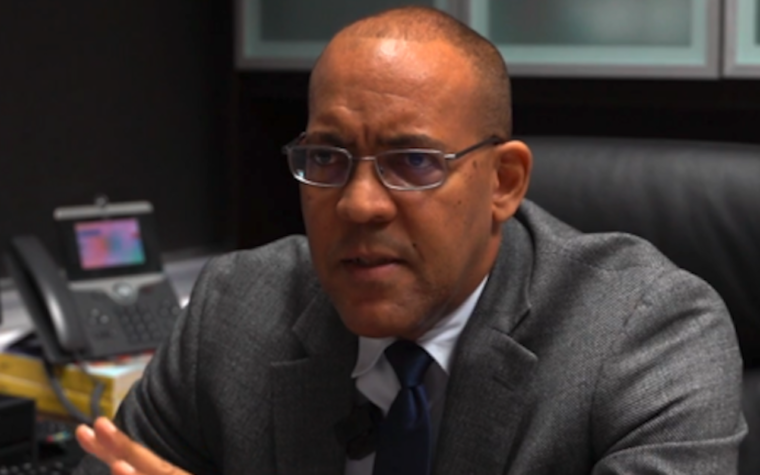As Government officials work behind the scenes to avert a hike in animal feed prices, farmers have declared that another increase in the cost of the product could drive them out of business.
Saying that they simply cannot afford to pay more at this time, they warned of layoffs and even bankruptcy with a possible hike by Pinnacle Feeds looming.
Minister of Business Kerrie Symmonds told Barbados TODAY that an analysis is being conducted to determine the extent of the challenges the company said had contributed to its decision to increase prices by as much as 11 per cent and inform recommendations on the way forward.
The manufacturer of poultry and livestock feed informed the Barbados Agricultural Society (BAS) last week that it could no longer hold off increasing prices until January 2023, given increasing input costs. However, it subsequently announced that it would delay the planned increase.
Symmonds explained that having met with the management of Roberts Manufacturing, of which Pinnacle Feeds is a subsidiary, president of the Barbados Chamber of Commerce and Industry Anthony Branker, and Minister of Agriculture Indar Weir, Pinnacle agreed to hold strain.
He said that even if Pinnacle was “under tremendous pressure you would want to make sure that the very last option is to impact the consumer”.
Minister Symmonds said the feed manufacturer was in the process of supplying the Ministry of Agriculture with financial details to facilitate an assessment and analysis of how the company was being impacted by increasing input costs and its inability to move up prices.
He disclosed that if all of the information “is forthcoming in the next few days, the Ministry of Agriculture and Ministry of Finance would come to an understanding of the exact circumstances affecting Pinnacle . . . and would be able to put together a set of recommendations and on that menu of recommendations, the policymakers would then be able to try to make an intervention . . . .”
“I accept that there are ways and means that Government can assist, including a system to source inputs from other places that would be cheaper,” Symmonds said, adding that once the analysis was done, the Government would indicate to the public what approach it would take.
Meanwhile, major stakeholders in the agriculture industry told Barbados TODAY that any increase in feed prices now would decimate the sector as farmers were trying to stay afloat with increases in the costs of fuel, water, electricity and already high feed prices significantly threatening their operations.
“We cannot afford an increase now because we are being outpriced by imports that are being allowed to come in by private wholesalers along with the BADMC [Barbados Agricultural Development and Marketing Corporation]. It appears that the quantities being imported are more than usual,” said executive director of Fasons Foods Inc. (Amir Chicken) Amir Juman.
“The problem is we can’t compete because our cost price is higher than other countries . . . . so right now we are feeling the pinch with that along with the feed increases.”
Juman, who is one of the island’s largest producers of poultry, said the imports caused a bigger issue than it appeared at face value.
“The imports should not be allowed because they are costing the industry jobs. If we are producing ‘X’ amount of birds a year and we have to scale our businesses according to the imports, the strength of employment will be weakened,” he explained.
Vice president of the Barbados Beef and Dairy Producers Association Brian Allan also painted a dismal picture of that subsector, noting that having to pay more for feed would put farmers in hot water.
“We have had about five feed increases in the last two to three years, not to mention the increases in water, diesel, electricity and so on, so the dairy farmers were and are desperate,” he said.
“And the recent five per cent farm gate increase we got from Pine Hill Dairy could not even cover the feed prices we had already. So we have not advanced in any direction at all. Government is still working on a cess or some form of support for the farmers so we are still in a bad place.
“A lot of farmers have huge balances at Roberts and now they are on a cash delivery basis so they don’t have credit anymore . . . so the cows go on very small rations . . . . So if the feed goes up, we are in bare trouble,” Allan cautioned.
As it relates to his own business, Allan said he could not afford to feed cows what they required, and was giving them only 75 per cent of the usual feed at the cost of them producing less milk. He added that if he gave the animals the full amount, “I would be bankrupt in less than two months”.
If he had to face another increase in feed prices, Allan said, he would have to reduce that amount to 60 per cent.
At the moment, he said, dairy farmers were relying on the grass that had grown as a result of the recent rains to feed their animals.
Allan added that with the cows’ feed being rationed, staff being reduced and/or hours being cut, and farmers reeling in debt, the future for the industry was bleak.
The farmer suggested that the easiest way out of the situation was for the Government to subsidise feed prices.
Vice president of the Barbados Pig Farmers Cooperative Society David Catlyn also said pork producers’ profit margins were thin and they could not afford a feed price increase.
He said farmers were getting shocks regularly and there needed to be some balance.
Catlyn cautioned that any more increases would make “everything go haywire”, adding that he was “waiting to see how or if farmers will get out of this critical situation”.










